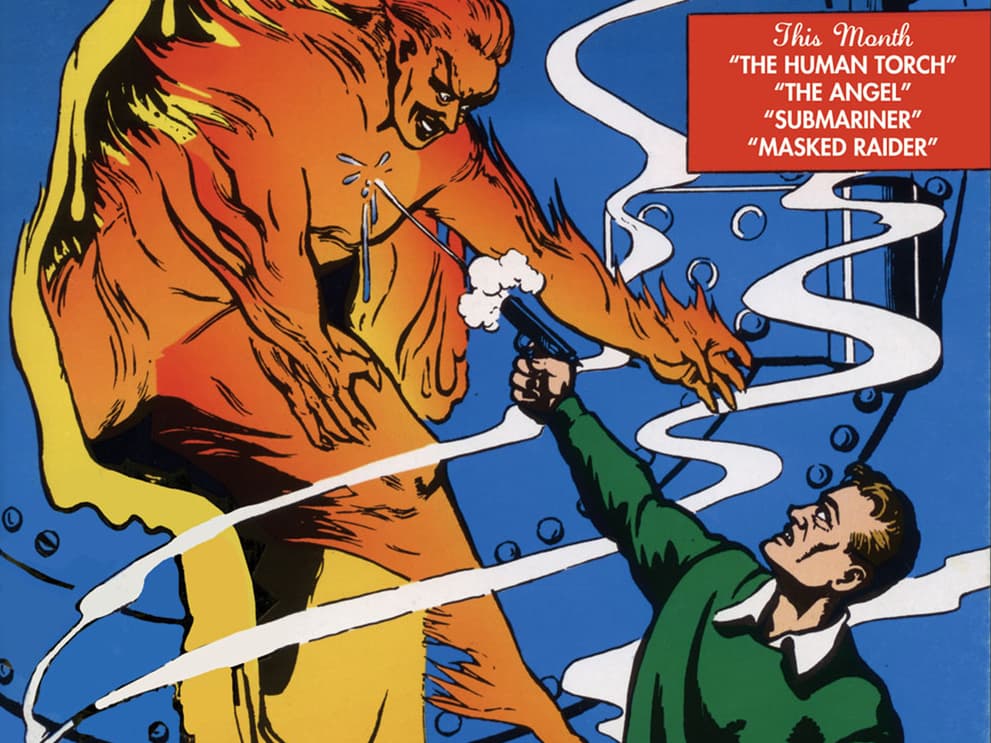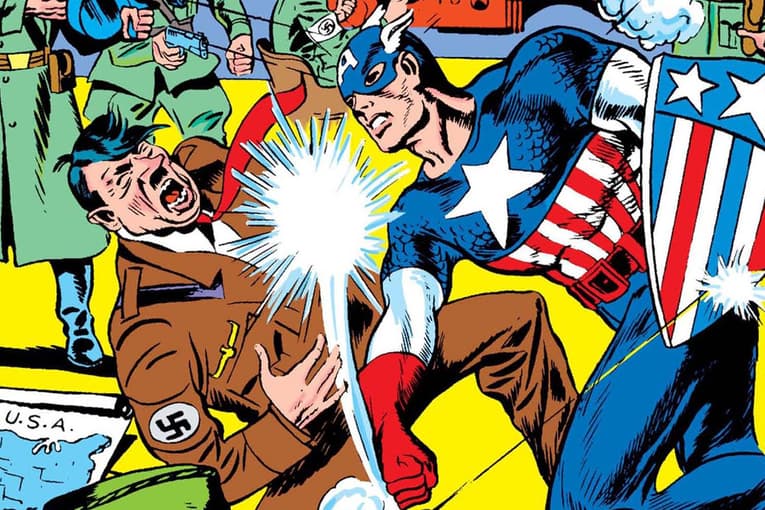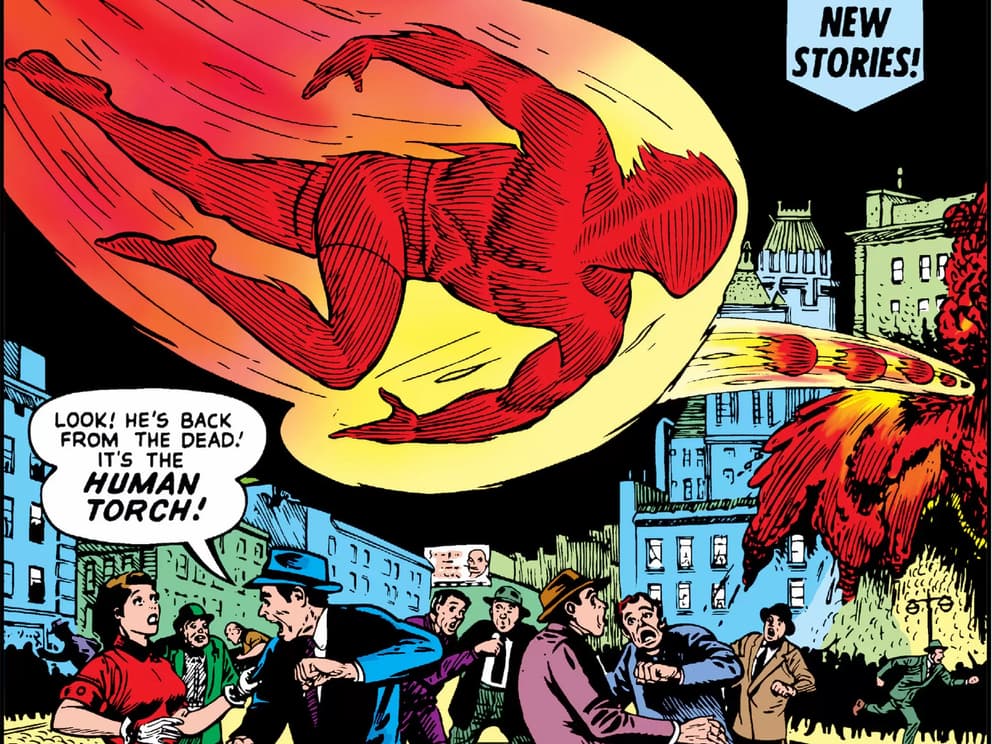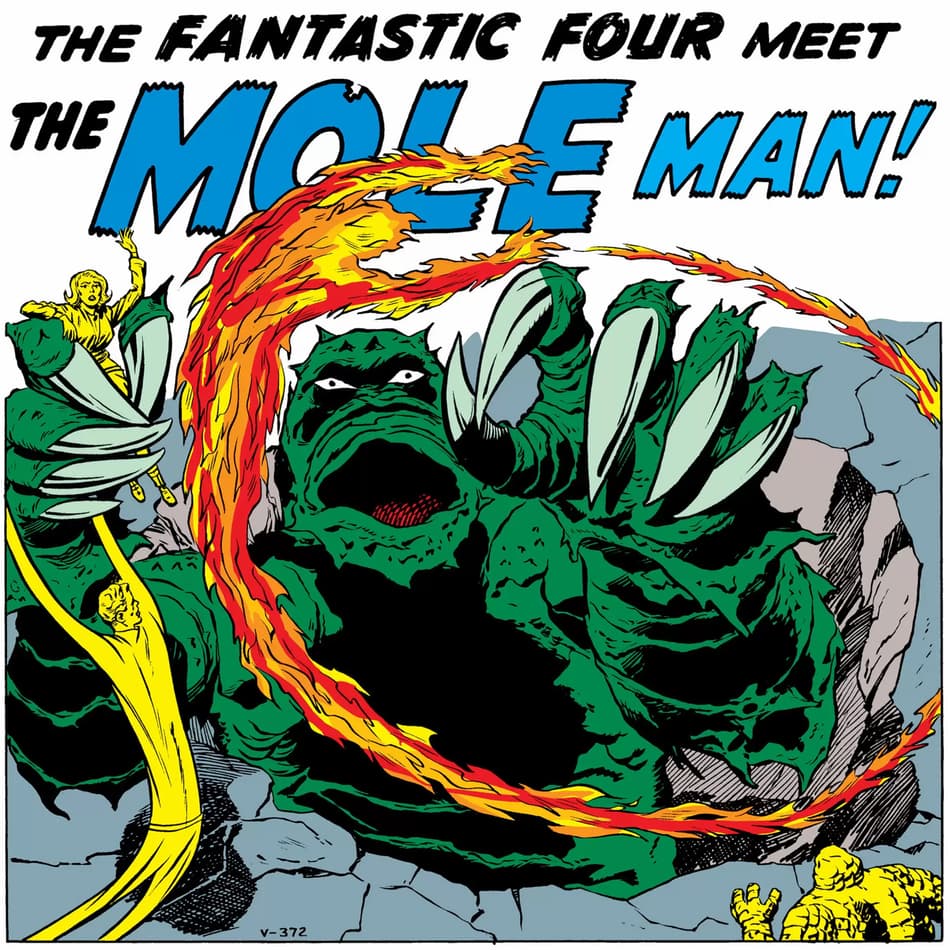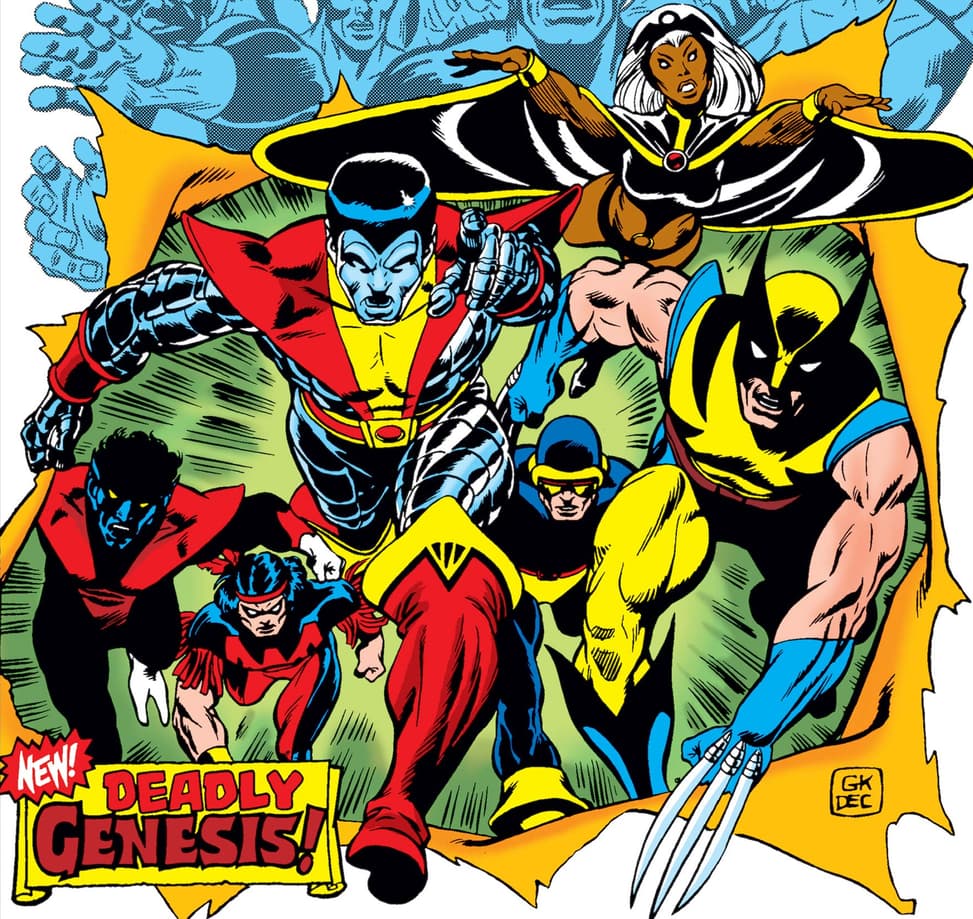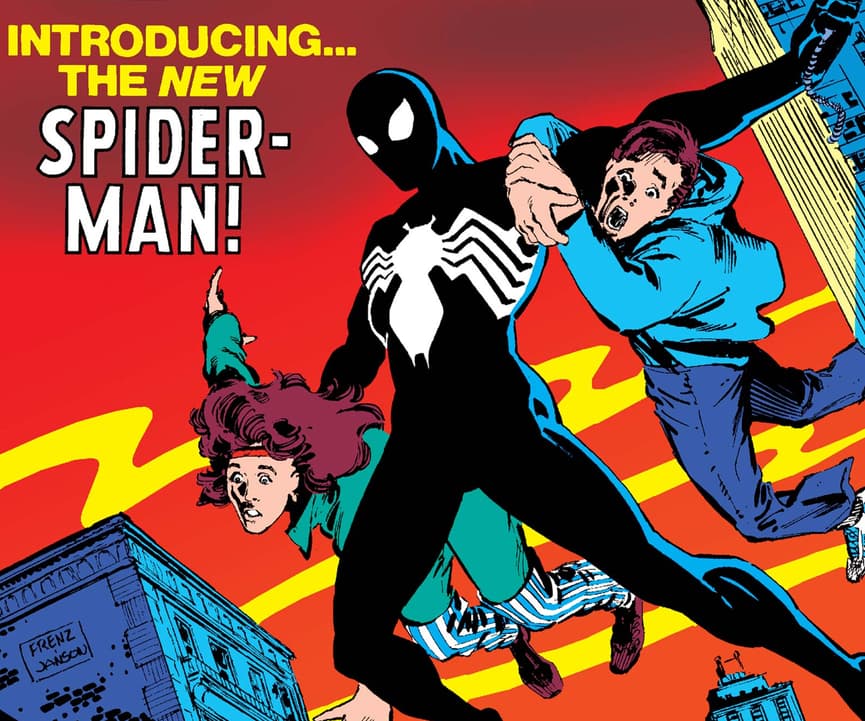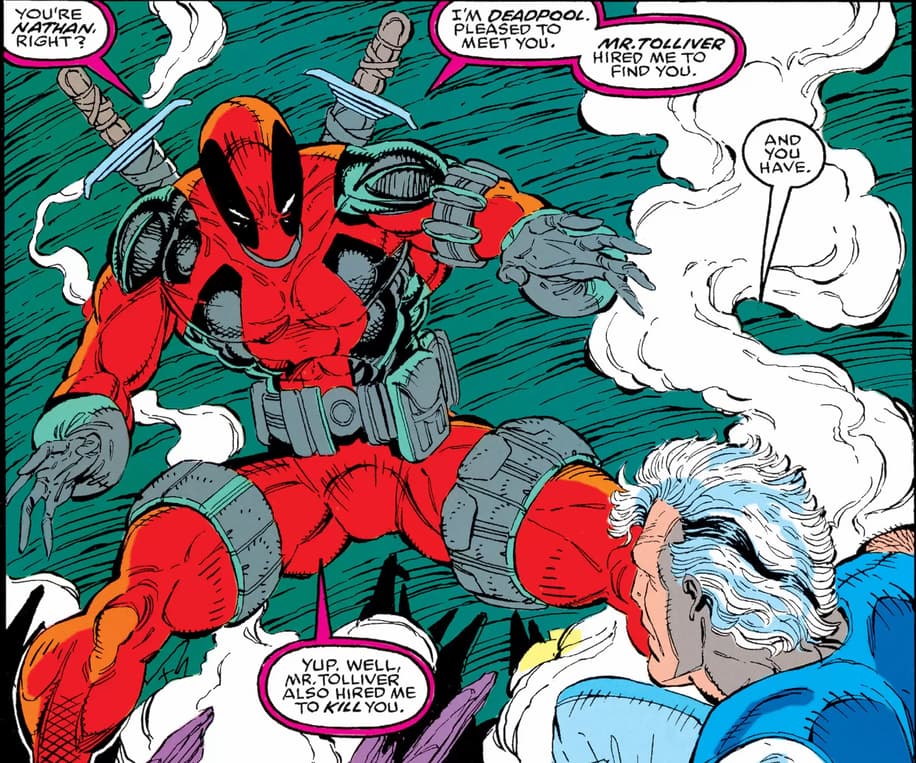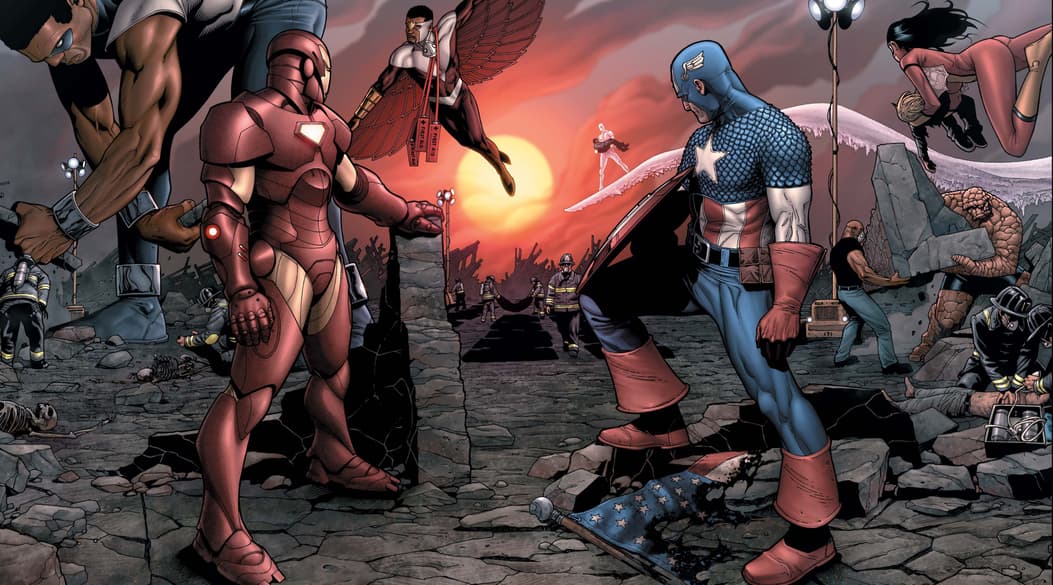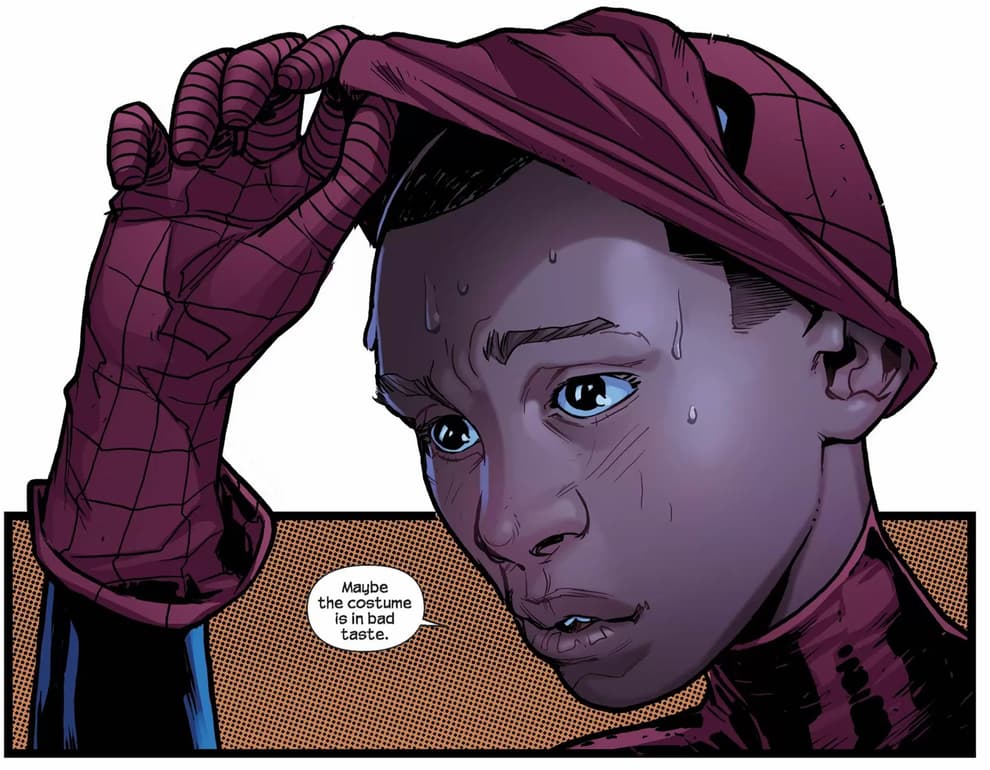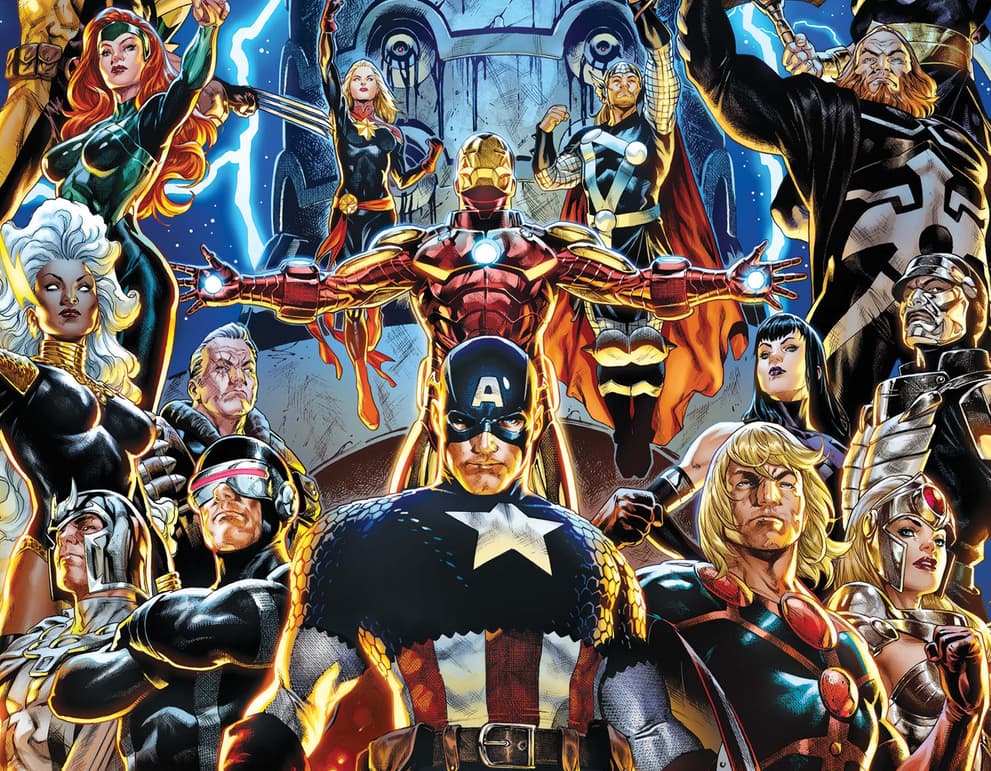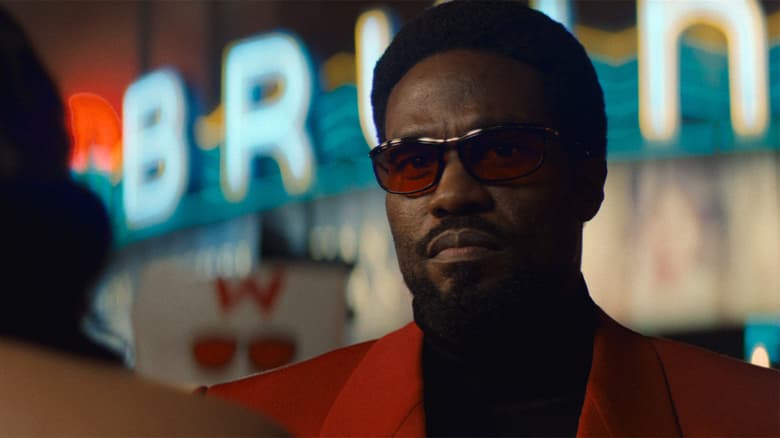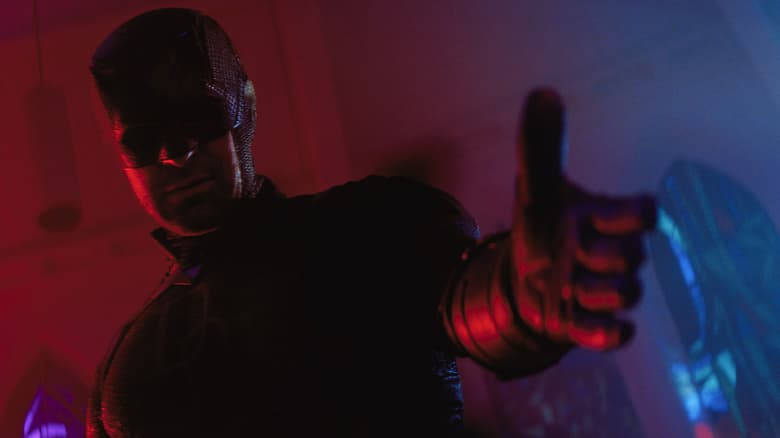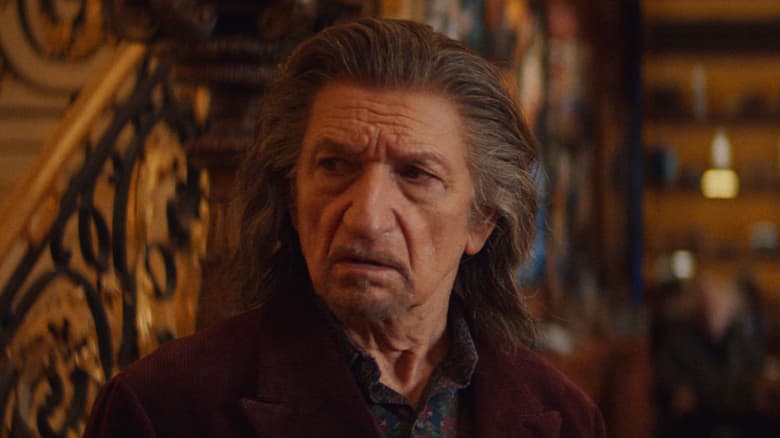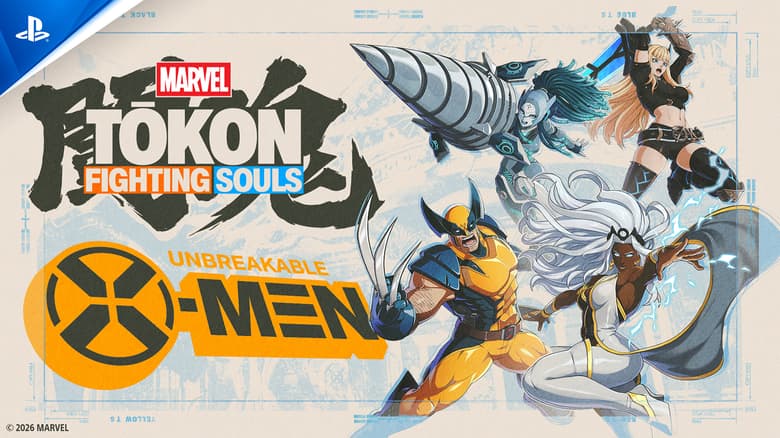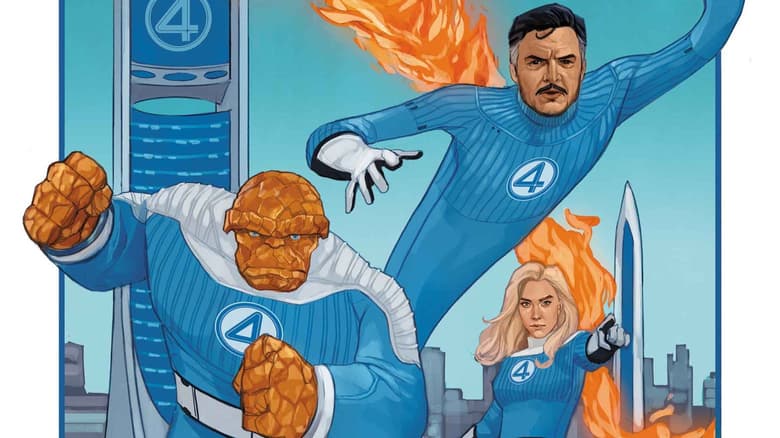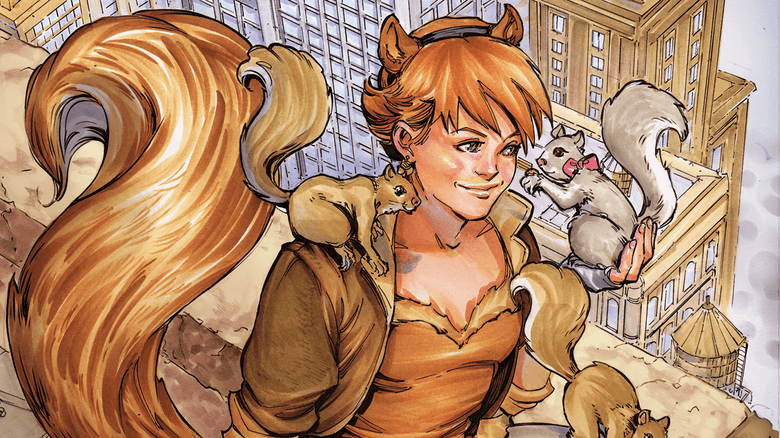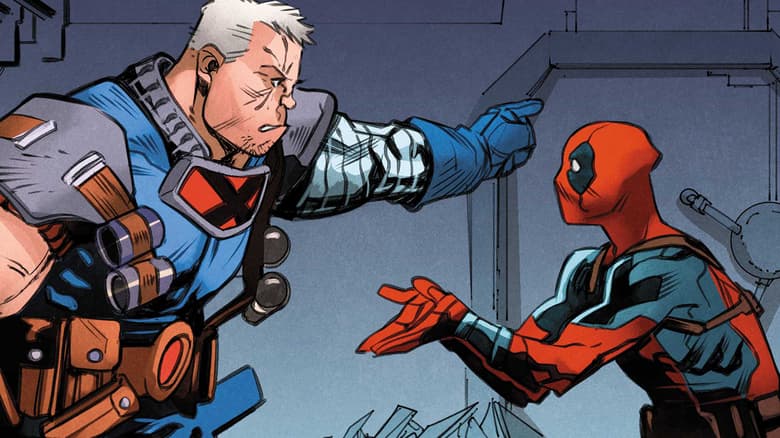Marvel's 85th Anniversary: Marvel Comics Through the Decades
To commemorate Marvel's 85th anniversary, revisit notable and iconic moments from throughout the decades.
On August 31, 1939, the release of MARVEL COMICS (1939) #1 birthed something special: the Marvel Universe. From the streets of New York to the far reaches of the Multiverse, the Marvel Universe opened readers up to countless strange tales and journeys into mystery with its heroes and villains. Since its early days as Timely Comics and Atlas Comics, the House of Ideas has chronicled the adventures of the sensational, the uncanny, and the astonishing.
To celebrate Marvel's 85th anniversary, let’s look back at some of the most important stories and character debuts from every decade of Marvel comics history. Every decade features far too many iconic stories and characters to mention here, but the following snapshots reflect the unique moments in time in which they were created.
THE 1930s
The first story set in Marvel Universe sees Professor Phineas Horton introducing his new creation to the public in MARVEL COMICS (1939) #1 by Carl Burgos. With synthetic skin that caught on fire when exposed to oxygen, the flammable android called the Human Torch took down the criminals like Tony Sardo.
In a story by Bill Everett, that issue also introduced Namor, the Sub-Mariner, who began his war against the surface world by attacking deep sea divers and their salvage ship. The issue also marked the first appearances of Thomas Holloway, a costumed adventurer better known as the Angel, and a Western hero called the Masked Raider (Jim Gardley).
THE 1940s
One year before the United States joined World War II, Steve Rogers jumped into action in CAPTAIN AMERICA COMICS (1940) #1 by Joe Simon and Jack Kirby. The Super-Soldier Serum transformed the frail Steve Rogers into a superhuman warrior known as Captain America. Alongside his trusty teenage sidekick Bucky, Captain America stopped Nazis and villains like the Red Skull. The patriotic heroes were joined by new characters including Toro, the Whizzer, and Miss America.
Marvel's first crossover occurred in MARVEL MYSTERY COMICS (1940) #8 by Bill Everett and Carl Burgos, bringing Namor face-to-face with the Human Torch for the first time in a battle that resulted in a standstill. These two Marvel stars would later join Captain America in the All-Winners Squad throughout the rest of the decade.
The 1940s also saw the debut of characters across a range of genres. From cowboy heroes like Kid Colt Outlaw and the Two-Gun Kid, to teenage romance stars like Millie the Model and Patsy Walker, to comedy characters like Ziggy Pig and Silly Seal, Marvel Comics vastly expanded its repertoire of stories.
THE 1950s
As super heroes faded in popularity in the 1950s, romance, cowboy, horror, science fiction, and crime comics replaced them on newsstands. The original Black Knight made a short-lived debut as a medieval hero fighting Morgan Le Fay in BLACK KNIGHT (1955) #1 by Stan Lee and Joe Maneely. Meanwhile, monster-focused titles like MEN'S ADVENTURES and the early days of JOURNEY INTO MYSTERY introduced readers to the likes of the Rawhide Kid, the Wild West's newest protector, as well as Gorilla-Man.
Elsewhere in the Marvel Universe, Captain America, Namor, and the Human Torch briefly resurfaced for a short-lived revival in YOUNG MEN (1950) #24. For less than a year, these heroes fought gangsters and Soviet-era communists before returning to obscurity. This era's Captain America and Bucky were later revealed to be imposters posing as the original duo.
THE 1960s
The ’60s kicked off with h a bang, bringing Marvel's First Family to life in FANTASTIC FOUR (1961) #1 by Stan Lee and Jack Kirby. In a story that drew on the trappings of science fiction and monster comics, the Fantastic Four used their cosmic powers to take on the Mole Man and his underground monsters.
With dynamic art and complex characterization, the FF's subsequent adventures expanded the Marvel Universe through the additions of characters like Doctor Doom, Black Panther, Silver Surfer, Galactus, and the Inhumans. Following the FF's success, legendary creators like Lee, Kirby, and Steve Ditko brought new icons Spider-Man, the X-Men, Daredevil, Doctor Strange, and Nick Fury into the fold.
Several new heroes—Iron Man, Thor, Ant-Man, Wasp, and the Hulk—assembled in AVENGERS (1963) #1 by Lee and Kirby. When Loki manipulated the Hulk into attack Thor, the heroes stopped him and banded together to form the Avengers. A few issues later, the Avengers rescued a frozen Captain America, rounding out their founding roster after the Hulk left unceremoniously.
THE 1970s
The X-Men burst into the 1970s when a new team roster revitalized this band of mutant heroes in GIANT-SIZE X-MEN (1975) #1 by Len Wein and Dave Cockrum. With the original X-Men captured, Professor X recruited an international group of mutants, including Storm, Nightcrawler, Colossus, and Wolverine, who joined Cyclops as the new core team.
This decade also marked the debuts of street-level crime fighters like Luke Cage, Iron Fist, and the Punisher, as well as supernatural heroes like Ghost Rider (Johnny Blaze), Moon Knight, and Blade. Iconic heroines like Spider-Woman and Carol Danvers' Ms. Marvel launched off into their own solo books.
The 1970s sent the Avengers off on cosmic adventures like "The Kree/Skrull War" and "The Korvac Saga," while Spider-Man suffered one of his most personal losses. In a subversive decade-defining moment, the Green Goblin killed Gwen Stacy, Peter Parker's first true love, in AMAZING SPIDER-MAN (1963) #121 by Gerry Conway and Gil Kane.
THE 1980s
When Peter Parker started rocking a new black costume in AMAZING SPIDER-MAN (1963) #252 by Tom DeFalco, Roger Stern, and Ron Frenz, nobody suspected it to be an alien symbiote. A souvenir from SECRET WARS (1984), the symbiote suit later bonded with disgraced journalist Eddie Brock, giving rise to Venom, one of Spider-Man's greatest foes and an unlikely eventual ally.
From Spider-Man surviving "Kraven's Last Hunt," to Daredevil's ultimate battle with the Kingpin in "Born Again," this era thrust our heroes into darker stories.
The X-Men kicked off a decade of expansion with "The Dark Phoenix Saga" in UNCANNY X-MEN (1963) #129 by Chris Claremont and John Byrne. As Wolverine emerged as a Marvel icon, the X-Men's own Jean Grey become a cosmic destroyer. The ’80s also introduced new mutant heroes like Rogue, Cable, Psylocke, Kitty Pryde, Emma Frost, and the New Mutants across a run of iconic stories.
THE 1990s
In the 1990s, attitude defined everything, and no one had more attitude than Deadpool. Making his first appearance in NEW MUTANTS (1983) #98 by Rob Liefeld and Fabian Nicieza, the Merc with a Mouth started off as an antagonist to the New Mutants and their gun-toting leader, Cable, before evolving into a violent antihero in his own right by the decade's end.
Meanwhile, new characters like Gambit, Bishop, Carnage, Ghost Rider (Danny Ketch), and Spider-Man 2099 brought more aggressive attitudes to their respective corners of the Marvel Universe.
Between the reimagined X-Men of "Age of Apocalypse's" alternate reality and Spider-Man's existential problems in "The Clone Saga," epic sagas defined the 90s. But no saga compares in scale to when Thanos finally assembled the Infinity Stones, forcing all of Marvel's heroes to come together to stop him, in INFINITY GAUNTLET (1991) #1 by Jim Starlin and George Perez.
In a story that began with Thanos snapping half of the universe away, Doctor Strange, Silver Surfer, and Marvel's surviving heroes fought a desperate battle against the Mad Titan to save everything in existence.
THE 2000s
The 2000s transformed the Marvel Universe. From the Scarlet Witch rewriting reality in "House of M" to the modern Guardians of the Galaxy assembling to stop "Annihilation," this decade pushed the Marvel Universe into uncharted territories.
The biggest challenge the heroes faced in the 2000s, however, was one another when Captain America and Iron Man went to war in CIVIL WAR (2006) #1 by Mark Millar and Steve McNiven. After standing up to the government's attempts to register superhumans, Captain America sparked a bitter battle between Marvel's heroes, creating an atmosphere of mistrust that persisted through SECRET INVASION (2008) and the rest of the decade.
While the original Avengers feuded, a team of teenage heroes emerged to carry on their heroic legacy in YOUNG AVENGERS (2005) #1 by Allan Heinberg and Jim Cheung. Patriot, Hulkling, Wiccan, Stature, and Hawkeye (Kate Bishop) came together to stop none other than Kang the Conqueror, one of the Avengers' oldest foes.
Much like the Young Avengers, the decade's other breakout stars—Jessica Jones, X-23, and the Sentry—held deep ties to Marvel history that were gradually revealed. Meanwhile, established characters like Bucky and General Thunderbolt Ross found new missions as the Winter Soldier and Red Hulk, respectively.
THE 2010s
A new generation of young heroes emerged throughout the 2010s, starting with Miles Morales, an alternate reality Spider-Man who stepped into the late Peter Parker's shoes in ULTIMATE FALLOUT (2011) #4 by Brian Michael Bendis and Sara Pichelli. Miles eventually moved to the 616 Marvel Universe, where he befriended the original Peter Parker.
This era ushered in brave new heroes like Ms. Marvel (Kamala Khan), Ironheart, and Ghost-Spider, and saw established heroes adjusting to new roles like Captain Marvel (Carol Danvers) and Captain America (Sam Wilson).
Epic battles like AVENGERS VS. X-MEN and CIVIL WAR II might have put our heroes at odds, but they rallied together when Doctor Doom collapsed the dying Multiverse into one world, Battleworld. As the capstone to a decades’ worth of Multiverse-focused stories, SECRET WARS (2015) by Jonathan Hickman and Esad Ribic offered glimpses of dozens of old, new, and reimagined alternate realities. The Marvel Universe's surviving heroes faced the ultimate challenge in trying to save existence from the clutches of the all-powerful Doom.
THE 2020s
As the 2020s began, the X-Men established a mutant nation on the island Krakoa and colonized the planet Mars. Fearing their ambitious expansions, the immortal Eternals declared war on them in A.X.E.: JUDGMENT DAY (2022) #1 by Kieron Gillen and Valerio Schiti, with the Avengers joining the conflict. Krakoa came crashing down in "Fall of X," with Orchis at the helm of the anti-mutant movement.
In an artificially created alternate universe, an evil version of Mr. Fantastic known as the Maker rewrote the history of the Ultimate Universe to rid his world of heroes. On this Earth-6160, Peter Parker grew up without becoming Spider-Man. But thanks to Tony Stark and his band of Ultimates, hope may just be restored. With familiar faces playing surprising new roles, these new heroes would do well to learn about the responsibilities that come with power in this ongoing saga.
Continue the celebration with MARVEL 85TH ANNIVERSARY SPECIAL (2024) #1, available now!
Want to brush up on your Marvel Comics history? Join Marvel Unlimited for instant access to 30,000+ comics on the Marvel Unlimited app or on the web, with digital issues spanning Marvel Comics classics to ongoing series!
Grab these comics and more at your local comic book shop! Or redeem then read your digital copy on the Marvel Unlimited app by using the code found in your print comic. Find and support your local comic book shop at ComicShopLocator.com.
To read your Marvel comics digitally, download the Marvel Unlimited app for iOS and Android devices. Gain an expansive catalog of 30,000+ comics spanning Marvel Comics history, plus access your entire digital library including comics redeemed from print.
The Daily Bugle
Can’t-miss news and updates from across the Marvel Universe!
